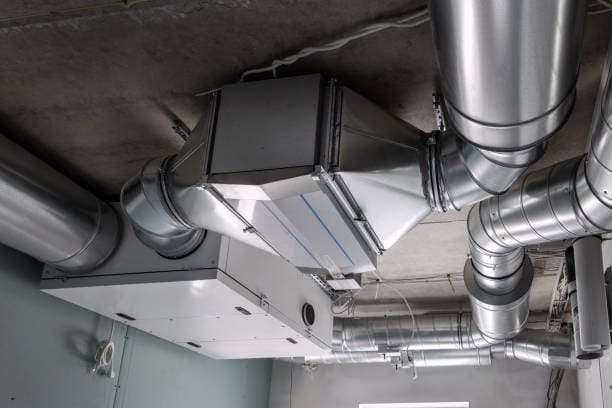In the quest for a comfortable and energy-efficient home, it’s crucial to consider the role of ventilation systems. Among these, Heat Recovery Ventilators (HRV) have emerged as an innovative solution that not only enhances indoor air quality but also promotes energy conservation. In this blog post, we’ll delve into the workings of HRV units and how they contribute to a healthier and more sustainable living environment.
Understanding the HRV Advantage:
- Introduction to HRV:
- A Heat Recovery Ventilator (HRV) is a mechanical ventilation system designed to exchange stale indoor air with fresh outdoor air while recovering the heat from the outgoing air. This process ensures efficient ventilation without compromising on energy efficiency.
- Continuous Air Exchange:
- HRV units operate continuously, extracting stale air from inside your home and replacing it with fresh outdoor air. This constant air exchange helps remove pollutants, allergens, and excess moisture, promoting a healthier indoor environment.
- Heat Recovery Mechanism:
- One of the key features of HRV units is their ability to recover and retain the heat from the outgoing air. During the ventilation process, the unit transfers heat from the warm indoor air to the incoming cooler air, ensuring minimal heat loss and reducing the need for additional heating.
The Benefits of HRV Units:
- Improved Indoor Air Quality:
- HRV units play a pivotal role in enhancing indoor air quality by continuously exchanging stale air laden with pollutants for fresh outdoor air. This is particularly beneficial in tightly sealed homes where natural ventilation may be limited.
- Moisture Control:
- Excessive moisture in the air can lead to mold growth and other issues. HRV units help control humidity levels by expelling moist indoor air and replacing it with drier outdoor air, contributing to a healthier and more comfortable living space.
- Energy Efficiency:
- By recovering and retaining the heat from the outgoing air, HRV units reduce the need for additional heating. This not only conserves energy but also translates into cost savings on heating bills, making them an environmentally friendly and economically sound choice.
- Year-Round Comfort:
- HRV units are versatile and beneficial in all seasons. In winter, they prevent heat loss during ventilation, while in summer, they help bring in cooler, fresher air without compromising indoor comfort.
In the pursuit of a healthier, more energy-efficient home, the role of HRV units cannot be overstated. These systems provide a continuous supply of fresh air, improve indoor air quality, and contribute to energy conservation. By incorporating an HRV unit into your home, you’re not only investing in your well-being but also embracing a more sustainable and comfortable living environment.

